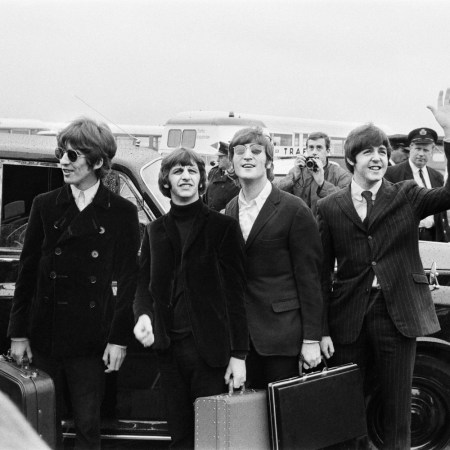It might not be as overtly racist as certain politicians referring to COVID-19 as “the Chinese virus,” but Paul McCartney called in to Howard Stern’s SiriusXM show on Tuesday, April 14, and shared some problematic views about Chinese wet markets and their role in the spread of the coronavirus pandemic.
McCartney, who is a vegan and longtime supporter of PETA, told Stern that he believed the Chinese wet markets — some of which sell freshly slaughtered animals — were responsible for the virus and hoped the current pandemic would inspire Chinese authorities to shut them down.
“I really hope that this will mean the Chinese government says, ‘OK, guys, we have really got to get super hygienic around here.’ Let’s face it, it is a little bit medieval eating bats,” he said, as The Hollywood Reporter noted.
The former Beatle suggested that his fellow celebrities should join him in condemning the wet markets. “It’s not a stupid idea, it is a very good idea,” he said. “They don’t need all the people dying. And what’s it for? All these medieval practices. They just need to clean up their act. This may lead to it. If this doesn’t, I don’t know what will.”
As if referring to the Chinese markets as “medieval” twice — which calls to mind Morrissey’s awful 2010 assertion that the Chinese are a “subspecies” because of the animals they eat — wasn’t bad enough, Sir Paul then likened them to nuclear warfare and slavery. “They might as well be letting off atomic bombs, because it’s affecting the whole world,” he said. “Whoever is responsible for this is at war with the world and itself … They did slavery forever too, but you have to change things at some point.”
Of course, what McCartney and many others have failed to understand is that Chinese wet markets are a vital part of the country’s way of life. As Bloomberg recently pointed out, the markets, which are often similar to farmers markets here in the States, are “as essential a part of everyday life as bodegas in New York City or boulangeries in Paris.”
“It’s misleading to focus on wet markets when we discuss the outbreak,” Dr. Zhenzhong Si of the University of Waterloo told the publication. “It overshadows the true problem here, which is the supply chain of wild animals. We shouldn’t demonize wet markets because of the coronavirus outbreak.”
Subscribe here for our free daily newsletter.
Thanks for reading InsideHook. Sign up for our daily newsletter and be in the know.


















